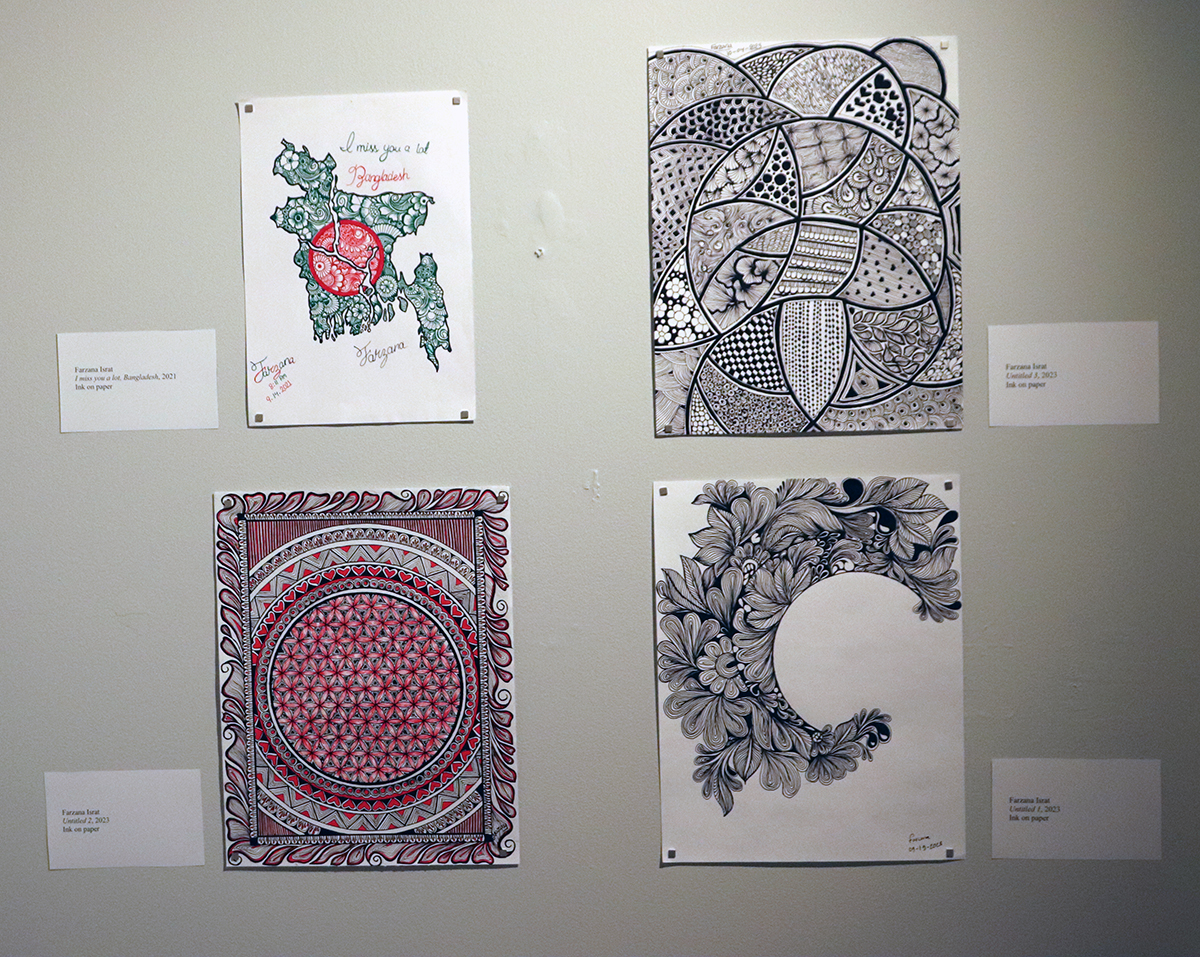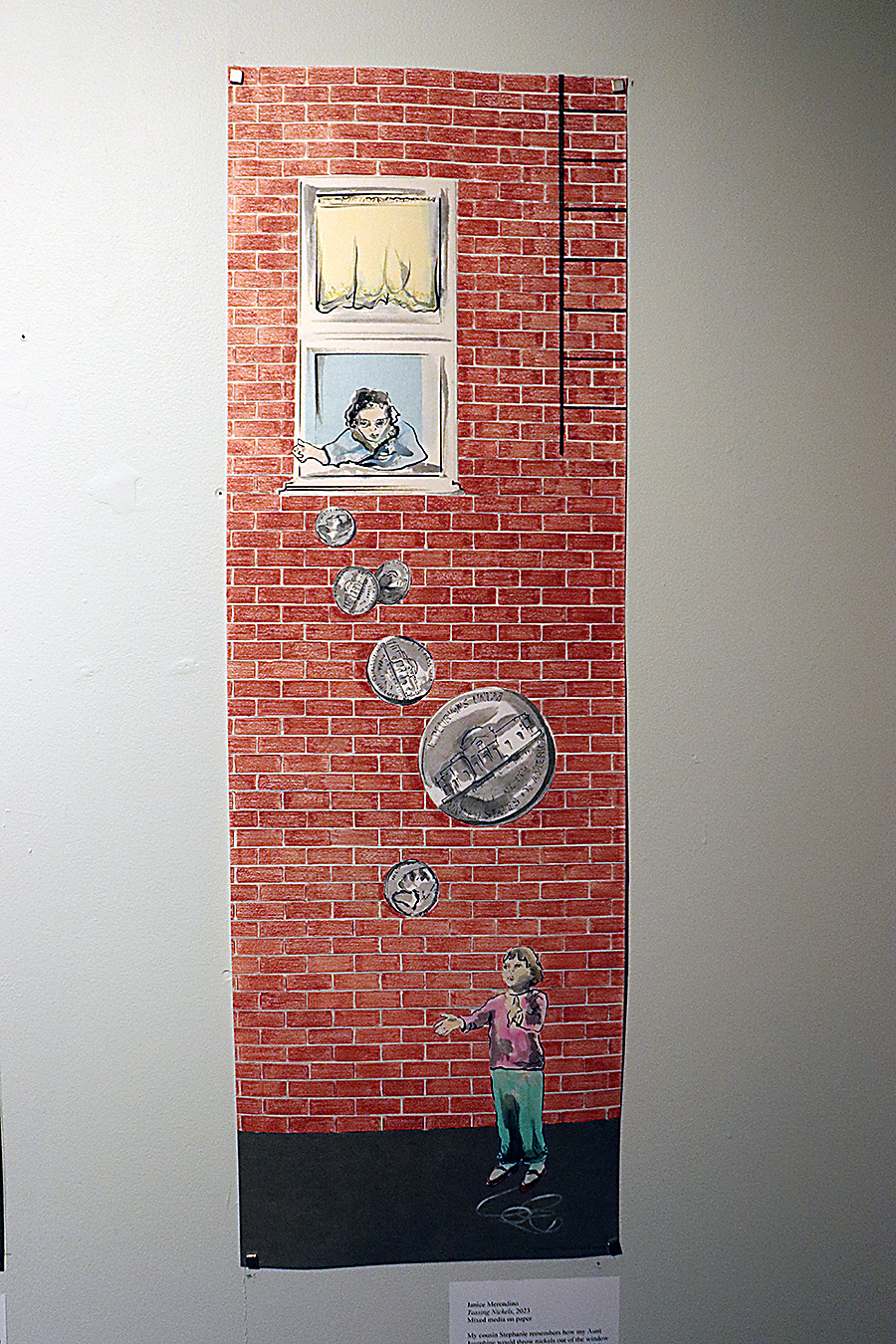Janice Merendino’s new exhibit at the Noyes Arts Garage of Stockton University started with a simple question: Who’s now living in my grandmother’s house?
That question has led to the creation of “Ducktown: An Atlantic City Immigration Story” celebrating the neighborhood through the stories of past and present immigrants. The exhibit opened Jan. 10 and continues until March 31. An opening reception will be held at 1 p.m. Jan. 20 at the Arts Garage.
Merendino, one of the five founders of the Clay Studio in Philadelphia, was driving through Atlantic City about eight years ago when she decided to make an impromptu visit to one of the homes she grew up in in the 1950s and ’60s.
“I got out of the car and was just curious about the house and who lived there now,” said Merendino, who won the 2018 Moore College of Arts and Design Distinguished Alumni Award. “Neighbors came out to greet me. I was so warmly greeted that I just felt like I needed to come back.”
That was the start of several visits to Ducktown to capture images, not only the homes of her paternal and maternal grandparents, but the neighborhood itself as it evolved from being comprised of predominately Italian immigrants in the 1900s to one that today has residents of Hispanic, Bangladeshi and Vietnamese heritage.
“I wanted to connect the past residents of a neighborhood to the present residents,” said Merendino, who also teaches drawing classes at the Philadelphia Museum of Art. “We aren’t related by blood, but we are related by place.”
Merendino approached Arts Garage Executive Director Michael Cagno with the idea for the exhibit, and he loved that it would be the first time the venue put such a hyperlocal focus on an Atlantic City neighborhood. He hopes it will attract current Ducktown residents to see what the garage has to offer.
“Being able to bring people from the neighborhood who normally wouldn’t come to the Arts Garage and see an exhibit is the culmination of this work,” said Cagno, who’s also the president of the Ducktown Community Development Corporation. “Hopefully it will provide that gateway opportunity for engagement with the garage at a deeper level.”
The exhibit’s nearly 50 works, which are predominately mixed media and ink drawings by Merendino, were mostly done off of historical photos from her family and current photos taken by her husband that are combined to create new art.
A series of six drawings titled “Keeping Family Close” incorporates historical research Merendino did of her paternal grandparents’ home and how it has changed over time. The series ends with a representation of the apartment building’s façade by Alexa Ramirez Lopez, a 10-year-old who lives there today.
It was important for Merendino to include art from current residents in the exhibit, including several ink drawings by young artist Farzana Israt, who Merendino was stunned to learn lives in her maternal grandmother’s home.
“A big part of the project was sharing my photos with the people who live in the houses today,” Merendino said. “They let us photograph every room. They were so open and so gracious. It was so magical for me. I can’t even explain how wonderful it was.”
Some of the pieces are simple but dramatic. One of the things that nagged at Merendino was a particular corner of her grandparents’ home where her grandfather’s favorite chair sat.
“As kids, we would all gather around this chair. And I wondered what was in that corner now?” she said. “Giuseppe’s Corner” and “That Corner Now” are displayed side by side in the exhibit.
 While many of the pieces represent the changes to her family homes, Merendino also wanted to show the evolution of the neighborhood.
While many of the pieces represent the changes to her family homes, Merendino also wanted to show the evolution of the neighborhood.
The exhibit includes a drawing titled “Ducktown Grocery 1930s” where her father worked as a teenager. The companion piece titled “We Love Our Corner Stores, La Tipica” is her impressions of the existing bodega on the corner of Arctic and Florida avenues combined with children’s drawings of their favorite candy. To get the children’s submissions, Merendino put together a pop-up event outside La Tipica one spring day encouraging neighborhood children to pick their favorite candy and then draw it.
“Kids just started coming over. They took it so seriously,” she said.
Merendino said she cherished all the new people she met through the project, and she also appreciates how it stretched her artistically.
“To do this kind of work was a departure for me. My work is usually abstract, not as much figurative work,” she said. “But I wanted to challenge myself and put myself in a new situation. I did everything that I set out to do, which is amazing to me because there were a lot of unknowns. … It all kind of occurred by happenstance.”
 Photos by: Mark Melhorn/Stockton University
Photos by: Mark Melhorn/Stockton University














